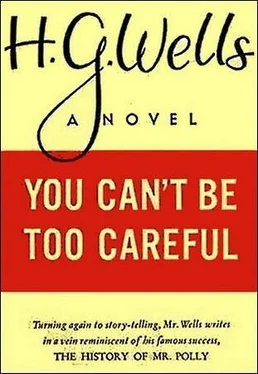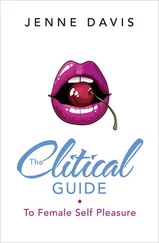H. Wells - You Can't Be Too Careful
Здесь есть возможность читать онлайн «H. Wells - You Can't Be Too Careful» весь текст электронной книги совершенно бесплатно (целиком полную версию без сокращений). В некоторых случаях можно слушать аудио, скачать через торрент в формате fb2 и присутствует краткое содержание. Жанр: Классическая проза, на английском языке. Описание произведения, (предисловие) а так же отзывы посетителей доступны на портале библиотеки ЛибКат.
- Название:You Can't Be Too Careful
- Автор:
- Жанр:
- Год:неизвестен
- ISBN:нет данных
- Рейтинг книги:4 / 5. Голосов: 1
-
Избранное:Добавить в избранное
- Отзывы:
-
Ваша оценка:
- 80
- 1
- 2
- 3
- 4
- 5
You Can't Be Too Careful: краткое содержание, описание и аннотация
Предлагаем к чтению аннотацию, описание, краткое содержание или предисловие (зависит от того, что написал сам автор книги «You Can't Be Too Careful»). Если вы не нашли необходимую информацию о книге — напишите в комментариях, мы постараемся отыскать её.
You Can't Be Too Careful — читать онлайн бесплатно полную книгу (весь текст) целиком
Ниже представлен текст книги, разбитый по страницам. Система сохранения места последней прочитанной страницы, позволяет с удобством читать онлайн бесплатно книгу «You Can't Be Too Careful», без необходимости каждый раз заново искать на чём Вы остановились. Поставьте закладку, и сможете в любой момент перейти на страницу, на которой закончили чтение.
Интервал:
Закладка:
“That’s good,” he said.
He found his son had preceded him at the hospital.
“He wanted to sit with her to the end but I thought better not,” said the sister in charge. “It’s an effort for her to speak. She’s troubled in her mind about something.”
“Has she been asking for me?”
“She wants to see you very much. She’s asked three times.”
That again distressed him inexpressibly. Somehow he ought to have been there.
“We had a sort of little difference,” said Edward Albert, trying to put unspeakable things into words. “Nothing reely—just a tiff you might say. I expect now she’s sorry she didn’t come and she wants to hear all about it.” (Sob).
“She must want to hear all about it. If only she’d come,....”
But that was not what was worrying Mary.
Their conversation was at cross-purposes,
“Promise me something,” she said unheeded.
“It was wonderful, Mary,” said Edward Albert. “Wonderful. Not a bit pompous. Not a bit high and mighty.”
“He’s your son.”
“Royal and democratic. Marvellous.”
“Don’t let anyone set you against him, Teddy. Don’t do that,” said the fading voice.
He did not hear what she was saying, for the glorious story he had prepared filled his mind.
He expatiated on the approach to Buckingham Palace; the crowd; the polite way in which he was picked out and asked in; how there were fellows taking snapshots and some cheering.
“Promise me,” she murmured. “Promise me.” They were her last words.
“The King was there and the Queen. Naturally. Such a nice young unaffected feller. No crowns for him. And her with that sort of jollying smile of hers. Nothing stuck-up about her. Oh! I wish you could have been there and seen how. different it was from what you supposed. It might have been a tea party rather than a court ceremony. And yet all the time a sort of dignity. You felt, here is something that will go on, the heart of a great empire like . . . All the time I was thinking of you and how I’d come back and tell you everything. But I wish you could have been there to see. Yes, yes. If you’d been there.
“I ’urried down to show it to you. And here it is, Mary. Here it is....”
For a few seconds she stared at her husband’s evident self-satisfaction as though it was something strange to her and then as steadfastly at the cross in his hand. She made no further effort to speak. Slowly her interest faded. She closed her eyes like a tired child. She closed them on him and on this clumsy stupid world for ever....
Presently the sister put a hand on his arm,
“She was such a wife to me.” said Edward Albert, sobbing freely. “What I shall do without her I don’t know.”
Sob, “Oh! I reely don’t know. I’m glad I was able to show her this. I am glad of that.... It ain’t much. It’s something; isn’t it?.... Something to show her....”
The nurse let him have his cry out.
He found his son in a mood of lethargic misery in the corridor. He had travelled all night for a last glimpse of her. “She’s gone, my boy,” said Edward Albert. “Our Mary. I was just able to show it to her before she closed her eyes.”
“Show what to her?” asked Henry.
Edward Albert held out the decoration.
“Oh! that,” said Henry, and lapsed into himself again.
BOOK VI.
God, Satan and Homo Tewler
I. “Tewler” to “Sapiens”
That completes all that is essential in the life of Edward Albert Tewler, his Deeds and Significant Sayings. But before this specimen human being can be put definitively into its place, in space, in time, among the stars, and Finis written to this book, a few possibly exasperating comments have still to be made on the nature of the universe and the wisdom of the ages. The reader was warned of this in the penultimate paragraph of the Introduction (q.v.).
Certain types of Homo Tewler, functioning under the designations of philosophers, theologians, teachers and the like, are still regarded with an excessive awe and far too readily accepted at their own valuation by the great majority of our race. They are like business, firms, competing among themselves for a monopoly, but agreed in selling God, Truth and Righteousness into the Tewler soul precisely as the proprietary medicine sellers sold their bottlefuls into Mrs Richard Tewler’s body. Not too confidently. Most of them betray a doubt of their own reality by dressing up in strange apologetic garments, gowns, hoods, robes, the oddest tiaras, mitres, petticoats and the like, shaving their heads, growing vast unclean beards, as who should say, “I am peculiar. I am not a man but a divine medium.”
I ask you; a medium for what?
For philosophy? But can there be more than one single philosophy for sane humanity? And can that philosophy be so outside the limits of the human understanding that it is necessary to dress up like a Gold Coast witch-doctor to expound that high hokey-pokey? Since poor rambling Homo sub-sapiens began to put facts together and ask questions about them, he has been accumulating a vast disorder of answers, right, wrong and oblique. Mostly they are oblique. His so-called “thinkers” were overtaken either by death or a conviction of indisputable Tightness, before they had thought anything out. The history of human thought is essentially a history of human error, of a midden that has never been thoroughly cleaned. Accumulation is the word for it. Never in all recorded time down to this last syllable, has that mass been submitted to an honest, sustained, digestive process. Its unassimilated chunks become “classics .” The student of philosophy doing “Greats” or whatever pompous name is given to this stale resurrection pie, is introduced to a jumble of incompatible ideas, a mixture of bits from different jig-saw puzzles; incoherence as wisdom. Our story of Edward Albert has shown reason why we still wait for a comprehensive clean-up. The little beast by the million blocks the way. But that clean-up has to come, if the transition to sapiens is ever to be attained.
And as with philosophy, so with religion. Religion is the binding system of ideas and practices which holds a community together. Obviously then, a healthy community can have only one religion, and now that distance has been abolished and mankind has become an interdependent world-wide community, there can be only one religion in the world. There can be no “religious toleration” in a sane world community. Your community needs to be bound by a common understanding, and you cannot allow organisations of priestly kidnappers to attack the social solidarity because they have a Church to sell.
The religion a world community needs is a very simple one. It cannot hold together without a dogmatic assertion of the supreme duty of outspoken truth, of the common ownership of the earth and the equal rights of man. So long, as people accept these fundamental dogmas, for dogmas they are, albeit vitally necessary dogmas, there is nothing to prevent folks elaborating whatever novel or antiquarian ceremonies or mythologies they have a mind for, or discussing in adult freedom any seditious ideas that occur to them. In a reasonably educated world, there would be no justification for suppressing the private sessions of the Jewish Khans or a Hell Fire Club or adult baptism, or Hitler’s astrologer or a celebration of the mass or a spiritualistic séance. So long as those who indulged in these oddities did not organise a propaganda of them and sell them to impair the general mental balance of the human community. But to tamper with the trustful minds of the young or the informative organisation of the world, is quite a different matter.
So we come to the problem of world teaching. This is certainly the most formidable problem ahead of us. For that old slattern, our Mother Nature, who has let one thing lead to another until we are now in a single world community, has neglected to give us any individual or collective drive for an education that will reconcile us to that conscious adaptation our situation demands. She has failed to mitigate our obstinate indisposition to learn. Homo Tewler may yet perish miserably en masse because of his fear of a plunge into reality. He holds on to his sinking ship; he looks at the dark waters and runs back to lock himself in his mental cabin with the sedatives the clerical salesman has persuaded him to trust. Yet time and again men of exceptional penetration have attempted to launch a recognition of universal brotherhood, of a new generosity and a co-operative life upon the world, as the only possible salvation for our species. It is not a new realisation. Now, indeed, it is finally urgent, but it has been plainly necessary to men of clear vision for scores of centuries. Nineteen centuries ago, Jesus of Nazareth, last, most indignant and most revolutionary of the Hebrew prophets, beating the money-changers and cursing the barren fig tree, was, so far as we can disinter his doctrine from subsequent accretions, preaching the gospel of human solidarity as his “Kingdom of Heaven”, and the socialist movement, before Marx undermined it, was an equally disinterested drive towards a sane salvation of our Tewler world.
Читать дальшеИнтервал:
Закладка:
Похожие книги на «You Can't Be Too Careful»
Представляем Вашему вниманию похожие книги на «You Can't Be Too Careful» списком для выбора. Мы отобрали схожую по названию и смыслу литературу в надежде предоставить читателям больше вариантов отыскать новые, интересные, ещё непрочитанные произведения.
Обсуждение, отзывы о книге «You Can't Be Too Careful» и просто собственные мнения читателей. Оставьте ваши комментарии, напишите, что Вы думаете о произведении, его смысле или главных героях. Укажите что конкретно понравилось, а что нет, и почему Вы так считаете.












